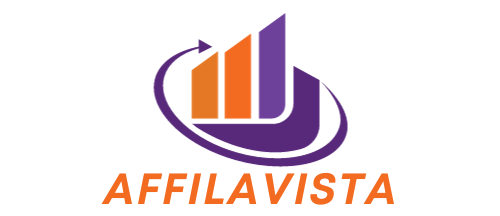Are you contemplating venturing into the world of affiliate marketing but unsure about the initial investment required? Look no further! This article will provide you with valuable insights into the monetary commitment needed to kickstart your journey in affiliate marketing. By understanding the necessary investment, you can make informed decisions and set realistic expectations as you embark on this exciting and potentially lucrative endeavor. So, let’s dive in and discover just how much investment you need to get started in affiliate marketing!
Choosing a Niche
Identifying your niche
When it comes to affiliate marketing, choosing the right niche is crucial. Your niche is the specific topic or area that your website will focus on. To identify your niche, consider your interests, passions, and knowledge. Think about what you are truly passionate about and what you have expertise in. This will help you create valuable content that resonates with your target audience.
Researching market demand
Once you have identified your niche, it’s important to research the market demand. Start by using keyword research tools to identify popular search terms related to your niche. This will give you an idea of how many people are searching for information or products in your chosen niche. Additionally, you can explore online forums, social media groups, and other platforms to see what people are discussing and what questions they have. This will help you understand the needs and wants of your target audience.
Analyzing competition
Analyzing the competition in your chosen niche is essential to set yourself apart and find unique selling points. Research other websites and affiliate marketers who are operating in the same niche. Analyze their content, their products, and the strategies they use. This will give you insights into what is already being done and help you find gaps in the market. Differentiate yourself by offering unique content and providing value in a way that other competitors aren’t currently doing.
Creating a Website
Domain name selection and registration
Choosing a domain name for your website is a crucial step. Try to select a domain name that is relevant to your niche and is easy to remember. Consider using keywords related to your niche in your domain name to improve your search engine visibility. Once you have selected a domain name, you will need to register it with a domain registrar. There are many reputable domain registrars available where you can purchase and maintain your domain name.
Choosing a hosting provider
After selecting and registering your domain name, the next step is to choose a hosting provider. A hosting provider is responsible for storing your website’s files and making them accessible to internet users. Look for a hosting provider that offers reliable uptime, fast loading speeds, and good customer support. Consider your website’s needs, such as the amount of traffic you anticipate, and choose a hosting plan accordingly.
Website design and development
Designing and developing your website is a critical aspect of creating a successful affiliate marketing business. Your website should be visually appealing, easy to navigate, and optimized for user experience. Consider using a content management system (CMS) like WordPress, which offers a wide range of themes and plugins to customize your website. Ensure that your website is mobile-friendly, as many people access the internet using their smartphones or tablets.
Content Creation
Writing high-quality content
Content is king in affiliate marketing. To attract and retain your audience, you need to create high-quality, valuable content. Focus on providing helpful information, solving problems, and answering questions related to your niche. Write in a conversational and engaging tone to connect with your readers. Incorporate keywords naturally into your content to improve your search engine visibility. Remember to proofread and edit your content to ensure it is error-free and polished.
Producing engaging multimedia content
In addition to written content, consider incorporating multimedia elements into your website. This can include images, infographics, videos, podcasts, and more. Multimedia content is more engaging and can help you present information in a visually appealing way. Experiment with different formats and see what resonates with your audience. Be sure to optimize your multimedia content for faster load times and make them easily shareable on social media platforms.
Optimizing content for search engines
Search engine optimization (SEO) is essential for driving organic traffic to your website. Research relevant keywords and incorporate them into your content naturally. Optimize your website’s meta tags, headers, and URLs to ensure they are search engine-friendly. Use internal linking to establish a structure within your website and help search engines navigate your content. Regularly update your content to keep it fresh and relevant in the eyes of search engines.

SEO Strategies
Keyword research and analysis
Keyword research is a fundamental part of any SEO strategy. Use keyword research tools to identify relevant keywords that have a high search volume and low competition. Consider long-tail keywords, which are more specific and can attract targeted traffic. Analyze your competitors’ keywords and see which ones are performing well for them. Incorporate these keywords strategically into your content to improve your search engine rankings.
On-page optimization techniques
On-page optimization refers to optimizing individual web pages to rank higher and earn more relevant traffic in search engines. This involves optimizing your title tags, meta descriptions, headers, and URLs with relevant keywords. Use descriptive and engaging titles and meta descriptions to entice users to click on your website in search engine results. Also, optimize your images by using ALT tags and compressing their file sizes for faster loading times.
Link building strategies
Link building is an essential aspect of SEO that involves getting other websites to link back to your website. This can help establish your website’s authority and improve its visibility in search engine rankings. Focus on creating high-quality content that other websites will naturally want to link to. Reach out to other website owners in your niche and propose collaborations, guest posts, or partnerships. Additionally, consider submitting your website to online directories and industry-specific listings.
Advertising and Promotion
Paid advertising campaigns
Paid advertising campaigns can help drive targeted traffic to your website and increase your affiliate marketing revenue. Consider using platforms like Google Ads or social media advertising to reach your target audience. Set a budget for your campaigns and monitor their performance closely. Continuously test and optimize your ads to improve their click-through rates and conversions. Remember to track your return on investment (ROI) to ensure that your advertising expenses are generating a positive return.
Social media marketing
Social media platforms offer a vast potential audience for your affiliate marketing business. Create social media profiles for your website on platforms that align with your target audience, such as Facebook, Instagram, Twitter, or LinkedIn. Share your content on social media and engage with your followers. Consider running social media contests or giveaways to attract more followers and increase your reach. Leverage social media advertising to boost your content and reach a wider audience.
Email marketing
Email marketing is a powerful tool for nurturing relationships with your audience and promoting your affiliate products. Build an email list by offering valuable content in exchange for visitors’ email addresses. Regularly send out newsletters or emails with updates, informative content, and promotions. Personalize your emails and segment your audience to ensure you are delivering relevant content. Use email marketing software to automate your campaigns and track their performance.
Affiliate Programs and Networks
Joining reputable affiliate programs
Affiliate programs are partnerships between advertisers and publishers (affiliate marketers) where publishers earn a commission for promoting the advertiser’s products or services. Join reputable affiliate programs that align with your niche and offer competitive commission rates. Look for programs that provide robust tracking and reporting systems, as well as responsive support. Research the reputation of the affiliate program and read reviews from other affiliates before joining.
Exploring affiliate networks
Affiliate networks act as intermediaries between publishers and advertisers, providing a platform for publishers to find and join multiple affiliate programs. Explore affiliate networks to discover a wide range of affiliate programs within your niche. These networks often offer additional resources, such as reporting tools, promotional materials, and payment consolidation. Research the network’s reputation and the types of affiliate programs they offer before signing up.
Understanding commission structures
Different affiliate programs and networks have different commission structures. Some programs offer a flat fee per sale, while others offer a percentage of the sale value. Some programs may also provide recurring commissions for subscription-based products or services. Understand the commission structure of the affiliate programs you join to estimate and forecast your potential earnings. Consider the average order value, conversion rates, and commission percentages when evaluating the profitability of different programs.
Tracking and Analytics
Implementing tracking tools
Implementing tracking tools is crucial to monitor the performance of your website and affiliate marketing efforts. Use tools like Google Analytics to track website traffic, user behavior, and conversions. Set up goal tracking to measure specific actions, such as newsletter sign-ups or product purchases. Implement affiliate tracking software to accurately track affiliate sales and commissions. Regularly review your tracking data to identify opportunities for improvement and optimize your strategies.
Analyzing website performance
Regularly analyze your website’s performance to identify areas of improvement. Review your website’s bounce rate, average session duration, and conversion rates. Identify pages or content that are performing well and those that may need improvement. Use A/B testing to experiment with different elements on your website and determine which changes lead to improved performance. Consider user feedback and use usability testing tools to ensure a positive user experience.
Monitoring affiliate sales
To monitor your affiliate sales, use the tracking tools provided by the affiliate programs or networks you have joined. Keep track of the number of clicks, conversions, and commissions generated by your affiliate links. Monitor the performance of different products or services you are promoting and identify which ones are driving the highest revenue. Regularly communicate with your affiliate managers to stay updated on new promotions, product launches, and performance incentives.
Investment in Tools and Software
Keyword research tools
Investing in keyword research tools can help streamline and improve your keyword research process. These tools provide valuable insights into search volume, competition, and related keywords. Consider using tools like Ahrefs, SEMrush, or Google Keyword Planner to identify high-performing keywords and analyze your competitors’ keyword strategies. Compare different tools and choose one that best suits your needs and budget.
SEO optimization plugins
To optimize your website for search engines, consider using SEO optimization plugins. These plugins can help you effectively optimize your meta tags, headers, and content for targeted keywords. Plugins like Yoast SEO or Rank Math provide comprehensive SEO analysis, optimization suggestions, and XML sitemap generation. Install and configure the plugins according to your website’s needs and follow their recommendations to improve your search engine rankings.
Email marketing software
Investing in email marketing software can automate your email campaigns and help you effectively manage your subscriber list. These tools offer features like email list segmentation, autoresponders, and email templates. Consider popular email marketing software options like Mailchimp, ConvertKit, or AWeber. Choose a software that integrates well with your website and offers robust analytics and reporting capabilities.
Educational Resources
Affiliate marketing courses
To enhance your knowledge and skills in affiliate marketing, consider enrolling in affiliate marketing courses. These courses cover various topics, including niche selection, content creation, SEO strategies, and monetization techniques. Research reputable online platforms like Udemy or Coursera that offer affiliate marketing courses. Read reviews and course descriptions to ensure they align with your specific goals and learning style.
Industry-specific books
Books are a valuable resource for learning from experienced affiliate marketers and gaining in-depth knowledge about specific strategies and tactics. Look for books written by respected industry professionals that cover topics relevant to your niche. Research popular affiliate marketing books like “Affiliate Program Management” by Evgenii Prussakov or “Affiliate Marketing: Proven Step-by-Step Guide to Make Passive Income” by Mark Smith. Take notes and implement the strategies discussed in these books into your own affiliate marketing business.
Online forums and communities
Participating in online forums and communities can provide valuable insights, support, and networking opportunities. Join forums related to affiliate marketing and your niche to connect with like-minded individuals. Engage in discussions, ask questions, and share your experiences. Platforms like Reddit, Warrior Forum, or AffiliateFix offer active affiliate marketing communities. Use these forums to stay updated on industry trends, gain inspiration, and seek advice from experienced affiliates.
Budgeting and Financial Planning
Setting an initial budget
Before diving into affiliate marketing, it’s important to set an initial budget. Consider the costs associated with domain registration, hosting, website development, content creation, and advertising campaigns. Determine how much you are willing to invest upfront to get your affiliate marketing business up and running. This will help you allocate your resources wisely and ensure that you have the necessary funds to cover your expenses.
Calculating ongoing expenses
In addition to your initial investment, calculate ongoing expenses that will be incurred on a regular basis. This can include hosting fees, subscription fees for tools and software, advertising costs, and website maintenance costs. Account for these expenses when estimating your monthly or annual budget. Regularly review your expenses and adjust your budget as needed to accommodate any changes in your affiliate marketing strategies or growth plans.
Forecasting revenue potential
While it’s challenging to predict exact revenue figures, it’s important to forecast the potential earnings of your affiliate marketing business. Consider factors like your niche’s market demand, the commission rates offered by the affiliate programs you join, and the traffic and conversion rates you achieve. Use tools like Google Analytics to track your website’s performance and gather data to inform your revenue forecasts. Continuously optimize your strategies and evaluate your revenue potential to drive growth in your affiliate marketing business.

